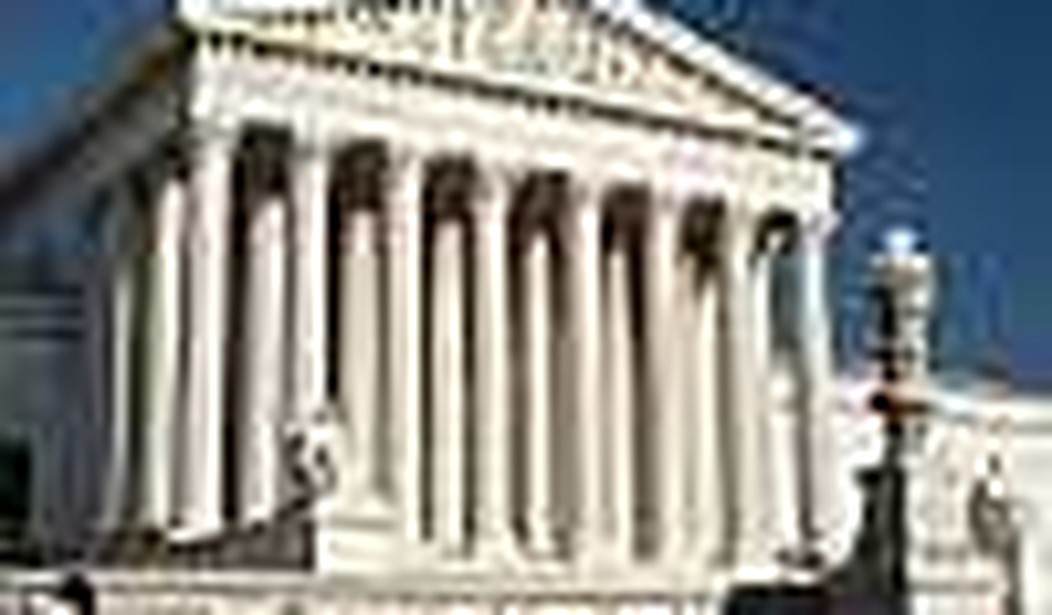In war, the first casualty is truth. In terrorism, the first casualty is civil liberties. Societies under siege do not put a premium on terrorists’ rights. Legal scholars might bemoan the attrition of liberty as a society under siege juggles freedom and order. But no one who worries about whether he is going to end up as a body part is likely to engage such concerns. Common sense and survival instincts militate against it.
If you think civil liberties have been compromised as a consequence of one attack, consider what the second one would have done. The experience of Western democracies is that one terrorism attack can create fear, but ongoing terrorist attacks create a siege mentality.
In 1972, IRA terrorism crossed the Irish Sea with the bombing at Aldershot. This carnage was followed by a series of pub bombings that gripped Britain in fear.
Parliament passed, without debate, the Prevention of Terrorism Act, incorporating measures that even its impassioned sponsors called “draconian.” Western European countries confronting terrorism responded similarly. In September 1986, France thoroughly revamped its judicial system in response to terrorism by integrating the judicial and intelligence systems in ways unimaginable to Americans. Germany passed stringent laws because the 9/11 terrorists used Hamburg as a base.
Lord Shackelton, author of the Prevention of Terrorism Act, told me that there was no greater freedom than the ability to leave your home and not be blown to bits. Lord Shackelton articulated what Britons felt: without security there is no such thing as liberty.
For seven years, the Bush administration has kept us from another 9/11. If you think this is the result of dumb luck, think again. If you think the Bush administration undermined civil liberties, take a moment to reflect on what this society would look like after another attack.
The tragedy of 9/11 resulted from the Clinton administration’s failure to understand that terrorism is neither a criminal justice matter nor a test of our adherence to civil liberties, but a matter of national security. Terrorism is warfare — surrogate and low-intensity warfare, but warfare nonetheless.
In 1993, the blind cleric Sheik Rahman masterminded the bombing of the World Trade Center. Rahman was tried as a criminal, not an enemy combatant, with full access to the protections and privileges of the American legal system. His lawyers used the discovery process to obtain information about the government’s unindicted co-conspirators. The government list later turned up in the hands of al-Qaeda operatives who bombed our embassy in Kenya.
Once convicted, Rahman was prohibited from having contact with the outside world; the government feared he would direct terrorist operations from prison. However, his radical lawyer, Lynne Stewart, served as a conduit for Rahman’s ongoing terrorist adventures. She was later arrested and convicted.
Civil libertarians were outraged that the “sanctity” of the convict/lawyer relationship had been violated. Yet there was no outrage that Rahman was plotting murder, and that Stewart was acting not as an officer of the court, but as a go-between in a criminal conspiracy. Stewart, while out on bail, spoke at San Francisco State University and other leftist venues, where she was enthusiastically embraced as a martyr.
It was in the Rahman case that Jamie Gorelick wrote her now infamous “wall-of-separation” memo, separating the intelligence community from information surfacing in criminal investigations and vice versa.
Gorelick’s memo was later used by Pentagon lawyers to stop the data-mining operation known as Able Danger. They prevented the team conducting the Able Danger operation from contacting the FBI about intelligence related to 9/11 that was unearthed in advance of the event.
Such walls were partially demolished by the Patriot Act. Seeing terrorism as a national security issue caused the Bush administration to promote cooperation between law enforcement and intelligence agencies.
The most outrageous consequence of the mindless adherence to the criminal justice model was the Clinton administration’s refusal to accept Osama bin Laden from the Sudanese and later the Afghans. The administration’s response was that they had no idea how to charge him as a criminal. What law did bin Laden break?
As Democrats agitate in this election season over our inability to capture bin Laden, they should consider — after the demolition of two skyscrapers and the loss of three thousand lives — that bin Laden was once ours for the taking.
The viable covert operations capability in our intelligence community was wrecked by Frank Church’s public revelations of the community’s dirty laundry during Congressional hearings held in the early 1970s. Jimmy Carter’s administration fired some 820 covert operatives, in the infamous “Halloween Massacre,” and severed the spy networks those operatives ran.
The consequence is that we can’t find bin Laden because the capacity to run covert operations has never totally recovered.
Our political parties have responded to terrorism with dramatic differences. To put it bluntly, when Osama calls, Republicans believe the intelligence community should listen. Democrats believe that there is more to fear from the intelligence community than from bin Laden.
Should the Democrats come to power, expect them to build walls that hinder the fight against terror. If you believe that terrorists like Sheik Rahman should be afforded the opportunity to abuse the criminal justice system to further their goals, and that the National Security Agency is a bigger threat to you than al-Qaeda, then join the Democratic base. But if you think that protecting the lives of Americans is more important than securing the rights of terrorists, then common sense will lead you to the same decision that most Western democracies have already made.









Join the conversation as a VIP Member